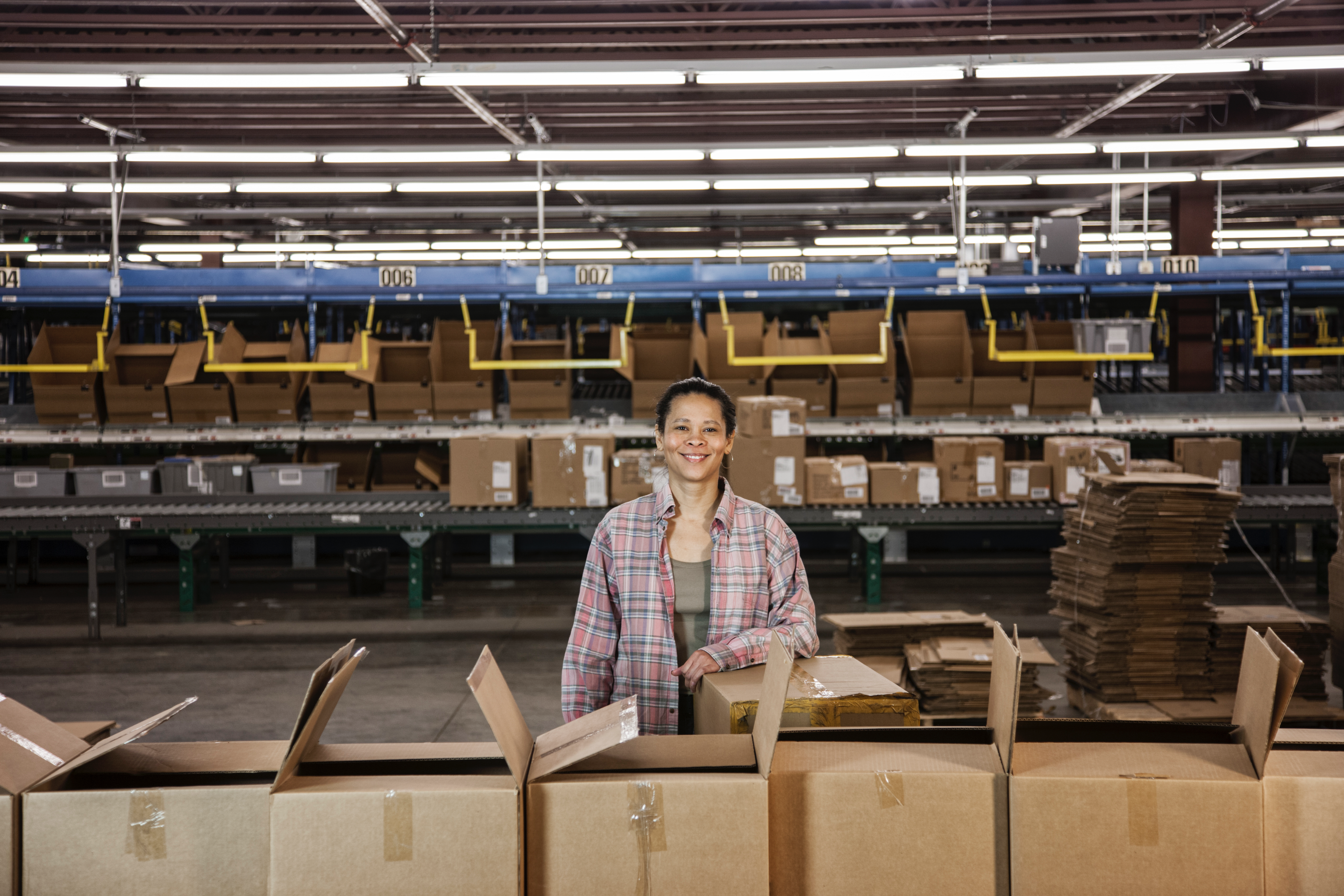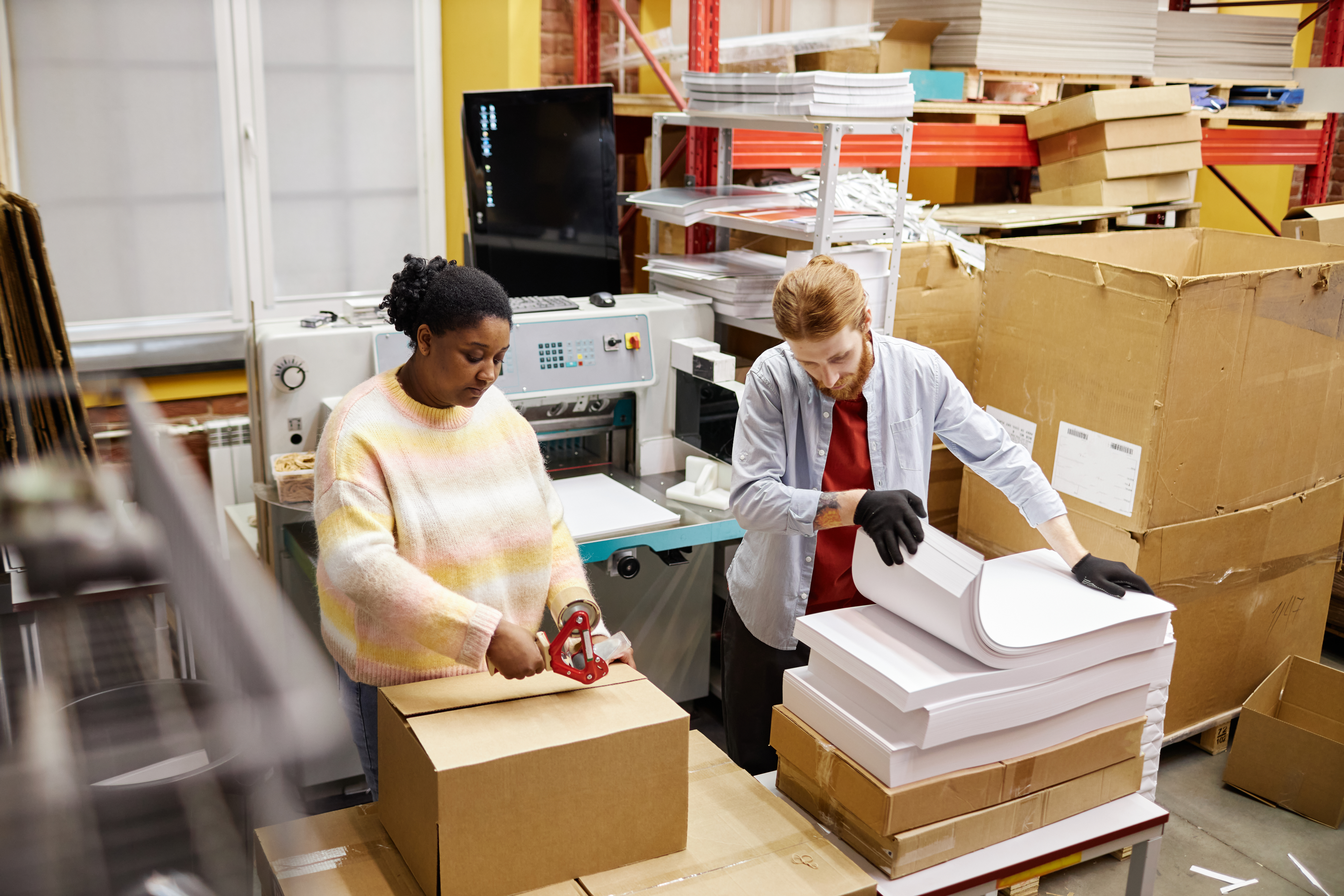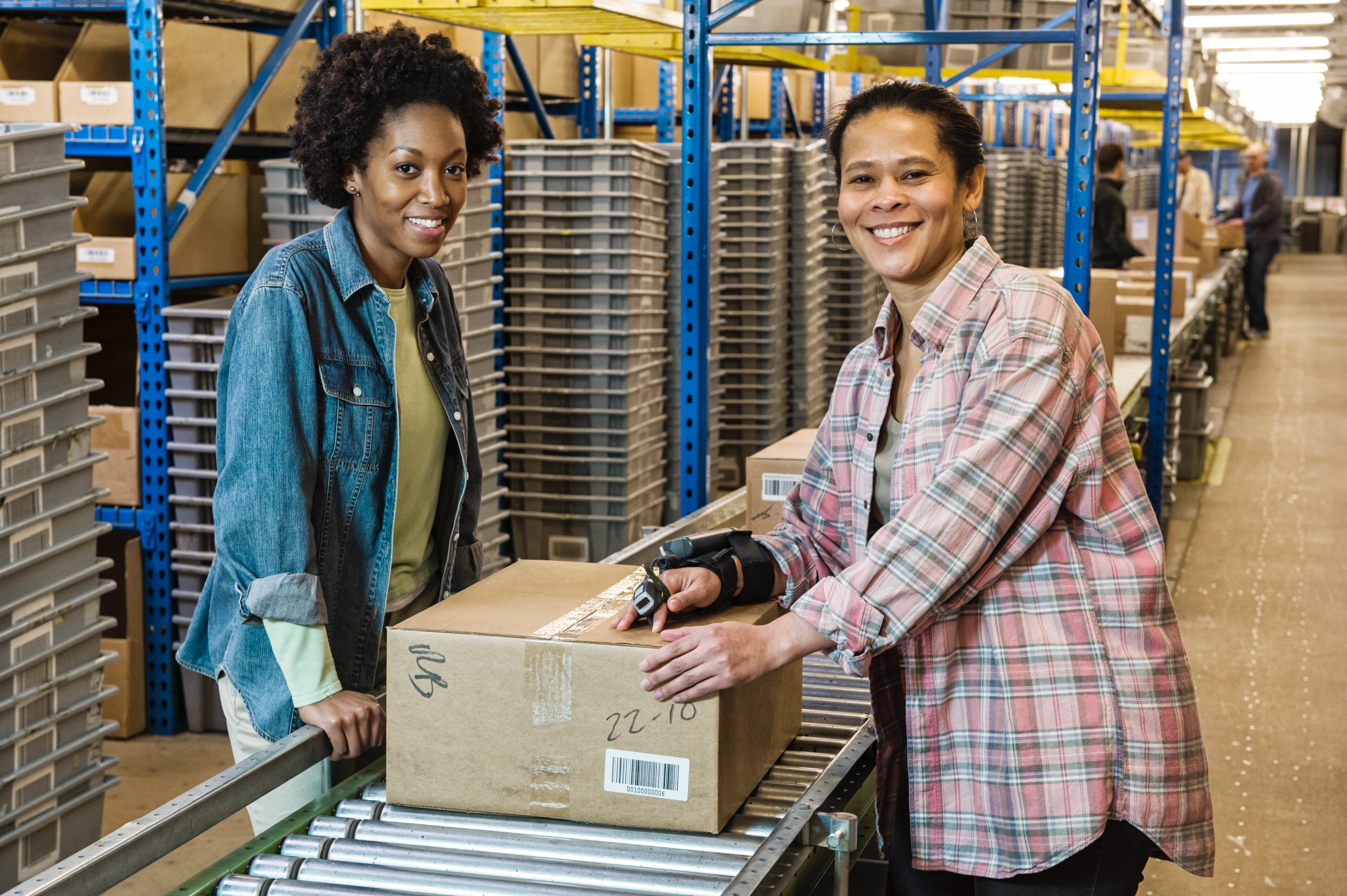Table of Contents
ToggleA sustainable supply chain incorporates environmentally friendly practices, economic efficiency, and social responsibility throughout the logistics and production process. It focuses on reducing waste, minimizing carbon footprints, and ensuring ethical labor practices without compromising business goals.
From sourcing raw materials to delivering the final product, every stage is optimized for sustainability. In my 35 years leading Tri-Link FTZ, I’ve witnessed how businesses transition from traditional logistics models to sustainable supply chains.
This shift not only aligns with global sustainability goals but also drives profitability through efficiency and consumer trust.

A sustainable supply chain incorporates environmentally friendly practices, economic efficiency, and social responsibility throughout the logistics and production process. It focuses on reducing waste, minimizing carbon footprints, and ensuring ethical labor practices without compromising business goals.
From sourcing raw materials to delivering the final product, every stage is optimized for sustainability. In my 35 years leading Tri-Link FTZ, I’ve witnessed how businesses transition from traditional logistics models to sustainable supply chains.
This shift not only aligns with global sustainability goals but also drives profitability through efficiency and consumer trust.
A sustainable supply chain is no longer a luxury—it’s a necessity. As a logistics company specializing in third-party solutions and FTZ services, we’ve seen businesses face mounting pressure to adopt greener practices.
Customers demand transparency, regulators enforce stricter environmental policies, and stakeholders expect corporate responsibility. Take, for example, a client we worked with last year.
Their primary challenge was reducing emissions from international shipments. By consolidating shipments through our FTZ facility, they cut shipping costs by 15% and lowered their carbon footprint significantly.
These tangible benefits are proof that sustainable supply chains create value beyond environmental impact. Moreover, operating sustainably enhances a brand’s reputation. Consumers today are willing to pay more for products that align with their values. Companies adopting sustainable practices not only retain customers but also attract investment from ESG-conscious stakeholders.
Despite the benefits, transitioning to a sustainable supply chain comes with its own challenges. Inventory management often tops the list, as maintaining optimal stock levels without excess waste requires precision.
Many companies struggle with demand forecasting, leading to overproduction or stockouts—both of which harm sustainability efforts. Another common hurdle is logistics planning.
Long shipping distances, inefficient routes, and poor coordination lead to excessive emissions and higher costs. As I’ve seen firsthand, businesses often overlook the power of consolidating shipments and leveraging FTZs to streamline operations.
Lastly, adapting to ever-changing sustainability regulations can be daunting. For instance, new mandates on carbon emissions in international shipping have left many businesses scrambling to update their processes.
With the right tools and partners, however, these challenges can be transformed into opportunities.

Streamlining sustainable supply chains begins with data-driven decisions. By implementing advanced inventory management systems, businesses can track stock levels in real-time, reducing waste and improving demand forecasting.
At Tri-Link FTZ, we’ve helped clients adopt such systems, leading to a 20% reduction in excess inventory. Automation is another game-changer.
From AI-guided warehouse robots to automated picking and packing systems, technology minimizes human error and increases efficiency. One client using our 3PL services saw a 30% boost in order fulfillment speed after automating their warehouse processes.
Consolidating shipments is equally critical. Instead of shipping small batches frequently, grouping products into larger shipments reduces fuel consumption and costs. Leveraging FTZs for staging inventory before international transit is a strategy we’ve refined over decades, making it easier for businesses to adopt sustainable practices.
Lastly, businesses must foster strong partnerships with carriers and suppliers who share their sustainability goals. These collaborations create a ripple effect, influencing every part of the supply chain to adopt greener practices.
Modern supply chains thrive on the use of advanced tools and technologies. Inventory management software, such as NetSuite and Shopify, plays a critical role in real-time stock tracking and demand forecasting, helping businesses maintain optimal inventory levels while minimizing waste.
By aligning stock levels with demand, businesses can reduce the overproduction that often leads to environmental harm. Warehouse management systems (WMS) further enhance sustainability by optimizing operations within storage facilities.
These systems streamline picking routes and reduce energy consumption, creating more efficient workflows that contribute to lower carbon footprints. Automation tools, including AI-powered robots, are equally transformative.
By taking over repetitive tasks like picking and packing, these robots minimize human error, increase speed, and reduce the overall costs associated with labor. Shipping and logistics platforms also drive sustainable practices by analyzing shipping routes and carrier efficiency.
These tools provide insights into fuel consumption, carbon emissions, and delivery times, empowering businesses to choose eco-friendly carriers and optimize delivery strategies. Another game-changing technology is blockchain, which enhances supply chain transparency by tracking every stage of a product’s journey.
This visibility helps businesses verify ethically sourced materials and address sustainability gaps effectively. These technologies not only improve operational efficiency but also help businesses meet sustainability goals, creating a win-win scenario for the planet and their bottom line. Read more here.
Outsourcing logistics through 3PL providers like Tri-Link FTZ offers businesses a pathway to sustainability without the burden of managing it in-house. Over the years, we’ve supported companies looking to optimize their supply chains by offering scalable and cost-effective solutions tailored to their needs.
Consider a retail client with a global footprint. Their challenge was managing returns sustainably while keeping costs low.
By integrating our FTZ services, we established a centralized return processing center, reducing waste and lowering transportation emissions by 25%. This hybrid model of outsourcing allowed them to maintain control over key processes while reaping the benefits of 3PL expertise.
Outsourcing also enables businesses to localize inventory, reducing shipping distances and carbon footprints. Moreover, it provides access to advanced technologies and a network of eco-conscious partners, making sustainability achievable even for small businesses.

Sustainability thrives on consistent practices. Clear communication with customers about delivery times and returns not only sets expectations but also fosters trust.
At Tri-Link FTZ, we encourage our clients to be transparent about their efforts, which builds consumer loyalty. Organizing warehouses effectively is another cornerstone of sustainability.
Placing high-demand items in accessible locations reduces energy consumption during picking. Combining this with regular audits ensures continuous improvement.
Collaborating with eco-friendly carriers further boosts sustainability. Many of our partners now use electric or hybrid fleets, significantly cutting emissions.
Encouraging clients to adopt similar partnerships amplifies these efforts. Lastly, sustainability is an ongoing journey.
Regularly reviewing metrics like carbon emissions, order accuracy, and inventory turnover allows businesses to refine their strategies and stay ahead of regulatory changes.
Sustainability resonates deeply with modern consumers. Accurate deliveries and eco-friendly packaging create a positive first impression, while smooth returns processes enhance the overall experience.
Customers appreciate brands that prioritize environmental responsibility, often rewarding them with loyalty. A recent survey showed that 62% of consumers are more likely to buy from brands with sustainable practices.
At Tri-Link FTZ, we’ve seen this play out with several clients who reported increased sales after adopting greener logistics strategies. It’s clear that sustainable supply chains are not just good for the planet—they’re great for business.
Scaling a sustainable supply chain requires strategic investments in technology, partnerships, and infrastructure. Expanding warehousing operations near major customer hubs, as we’ve done at Tri-Link FTZ, reduces shipping times and emissions.
Automation further supports scalability by streamlining repetitive tasks and minimizing errors. Forecasting demand accurately is another critical factor.
Using historical data, businesses can plan inventory levels and staffing needs, avoiding overproduction and waste. For example, one of our clients improved their forecasting accuracy by 40% after implementing AI-driven tools.
Finally, maintaining quality control ensures that sustainability efforts do not compromise customer satisfaction. Regular audits and feedback loops help identify areas for improvement, enabling businesses to scale operations responsibly.

Several companies have set benchmarks for sustainable supply chains, showcasing strategies that balance environmental impact, efficiency, and customer satisfaction. These examples demonstrate the potential for innovation and responsibility in logistics.
These examples illustrate that sustainability isn’t a one-size-fits-all approach. Whether a global powerhouse or a growing brand, any business can adopt strategies to build a sustainable supply chain. Read more here.
Sustainable supply chains are no longer optional—they are essential for businesses aiming to thrive in a competitive and environmentally conscious market. Drawing from over 35 years of experience at Tri-Link FTZ, I’ve seen firsthand how implementing greener practices transforms operations, enhances customer loyalty, and creates long-term value.
From leveraging advanced tools to fostering strong partnerships, the path to sustainability is filled with opportunities to innovate and excel. As a leader in third-party logistics and foreign trade zones, we’re committed to helping businesses navigate this transition effectively.
Whether you’re looking to streamline operations, reduce costs, or align with global sustainability goals, the solutions are within reach. Let’s continue building a future where logistics and sustainability go hand in hand. At Tri-Link FTZ, we’re here to guide you every step of the way.
Share this article
We have other resources available upon request as well as one-on-one support and personalized answers, just like our services.
Simply contact us anytime and we’ll get back to you to answer your questions and provide meaningful answers that show you how Tri-Link supports your logistics, reduces costs, and accelerates efficiency.
Tri-Link delivers exceptional FTZ and 3PL services tailored to your global trade needs.
Our solutions combine innovation, quality, and efficiency to exceed your expectations and meet your specific requirements.